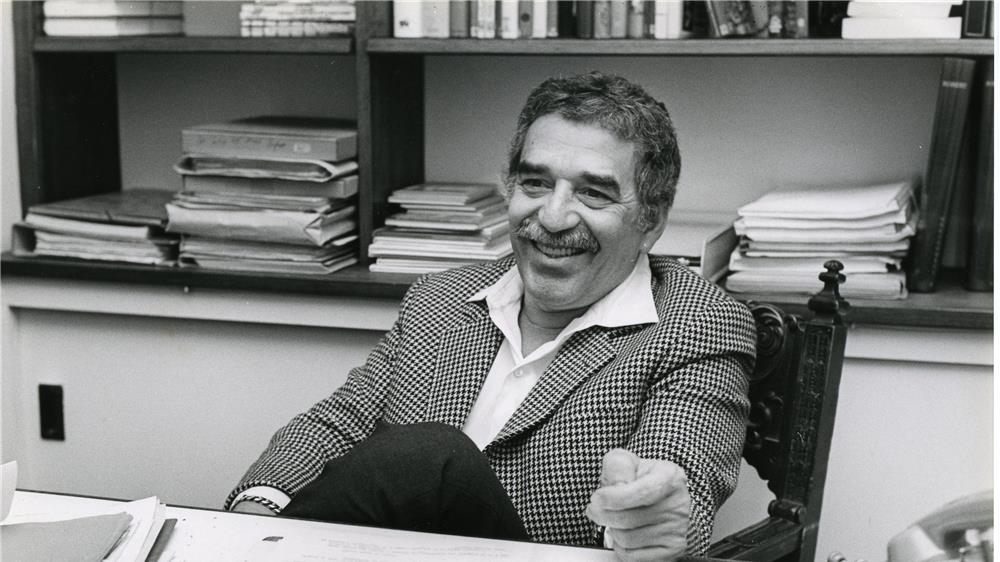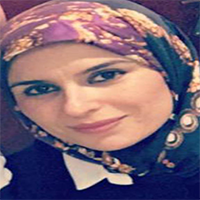بعضهم بدأ صحفيا قبل أن ينخرط في عالم الرواية، والبعض الآخر كان يشذب طرفي قلمه لكتابة المقالات الصحفية تارة، وأخرى لكتابة الرواية.
أمين معلوف وغابرييل غارسيا ماركيز وتشارلز ديكنزوإرنست همنغواي وغيرهم من الوجوه الأدبية البارزة، جاؤوا من خلفيات صحفية قبل أن يغرقوا تماما في عوالمهم الروائية. فهل من علاقة بين السرد الصحفي والسرد الروائي؟
يقول ماركيز إن التقرير الإخباري قصة واقعية، بل إنه يَعتبر التقرير الإخباري بحد ذاته جنسا أدبيا. وفي هذا التعريف جزء كبير من الحقيقة إذا نجح الصحفي في كتابة قصته الخبرية، مستفيدا من أدوات البناء الروائي التي تحوي أحداثا وأشخاصا وزمانا ومكانا حقيقيين وأسلوبا تشويقيا، ولكن بالكيفية التي يراها الصحفي مناسبة، محطّما بها جمود التقرير الإخباري.
لذا، فقد برز مصطلح الصحافة الروائية التي ينصبّ اهتمامها بحسب ماري فانوست الباحثة في الصحافة الروائية بجامعة لوفان الكاثوليكية في بروكسل، على تقديم القصص الأقرب إلى الرواية الخيالية من قصص الصحافة الواقعية، على الأقل في أساليب الكتابة وطبيعة الواقع المرجو نقله (1).
وتعرَّف الصحافة الروائية بكونها النوع الذي يأخذ تقنيات الرواية ويطبّقها على الكتابة الواقعية، بينما يتطلب السرد تقريرا عميقا ومعقدا وتقديرا للقصة الإخبارية، انطلاقا من التقاليد البنيوية للأخبار اليومية، والاستخدام الإبداعي للغة (2).
ورغم وجود الكثير من الخيوط التي تجمع بين الكتابتين الروائية والصحفية، فإن هناك فروقا شاسعة بين النوعين لا تجعل من أي صحفي روائيا ولا العكس، إلا إذا كانا (الصحفي والروائي) يتمتعان بالموهبة المصقولة بالخبرة. وربما ساهمت خلفيات بعض الصحفيين في توسيع مدى تجاربهم وزيادة اطلاعهم على صنوف مختلفة من المجتمع، مما مكَّنهم من اقتحام عالم الرواية. لكن الروائي المغربي أحمد الكبيري يؤكد أن الرواية قد تأتي من خلفيات متنوعة إحداها الصحافة، مقاربا بين الصحافة والرواية على مستوى الواقع والخيال والاستقلالية ومستوى الأسلوب والأثر، ليصل إلى نتيجة مفادها أن الروائي إما أن يكون روائيا أو لا يكون، سواء أتى إلى الرواية من الكتابة الصحفية أو من العمل في المناجم تحت الأرض. يقول الكبيري "ربما العديد من الصحفيين وغيرهم يحلمون أن يصبحوا روائيين، لكن الروائي الحقيقي لا يحلم إلا أن يتفرغ للقراءة والكتابة" (3).
ومن بين الكتاب الأبرز على الساحة العربية والعالمية، اللبناني الفرنسي أمين معلوف الذي بدأ حياته المهنية في صحيفة "النهار" الأسبوعية بلبنان، حيث عمل مراسلا لها لمدة 12 عاما، غطَّى خلالها أحداثا في عدد كبير من البلدان، منها الثورة الإيرانية وحرب فيتنام.
بعد هجرته إلى فرنسا بسبب الحرب الأهلية اللبنانية عام 1975، واصل معلوف عمله صحفيا دوليا في "النهار"، قبل أن يصبح رئيس تحرير مجلة "أفريقيا الشابة". عرف عن معلوف براعته في كتابة الرواية التاريخية بقالب تشويقي، مما يقودنا إلى الربط بين عمله كصحفي ملتزم بقصِّ الرواية الإخبارية بأمانة، وكتابته الرواية الأدبية استنادا إلى الأحداث التاريخية، واحتراما للوقائع التي حدثت فعلا في الفترات التي كتب عنها، دون الخروج عن منطقية التاريخ. إن تتبع التاريخ في كتابات معلوف يذكِّر بحال من الأحوال بتتبعه (التاريخ) في الكتابة الصحفية، رغم اختلاف الطريق لاحقا، إذ يدخل الخيال على الرواية بينما لا يُسمح له بالولوج إلى التقرير الإخباري.
وفي المقابلة التي أجرتها معه قناة "فرانس 24" في برنامج "ضيف ومسيرة" عام 2012، قال معلوف إنه يعتقد أن الصحافة انفتاح على العالم، وإنه أتى من بيتٍ كان للصحافة فيه مكان، بل إن والده كان يمتلك صحيفة كتب فيها هو نفسه مقالات حين بلغ من العمر 16 عاما، إذ كان لديه اهتمام منذ صباه بما يحدث في العالم، وكان من الطبيعي أن يعمل في مهنة الصحافة التي مارسها باهتمام ولذة، حسب تعبيره.
جاءت الكتابة الروائية في حياة معلوف بعد امتهانه الصحافة، إذ بدأت كرغبة، إلا أنه سرعان ما احترفها، حتى باتت شهرته كروائي تفوق شهرته الصحفية. وقد تفرَّغ معلوف للكتابة الإبداعية تماما عقب النجاح الذي رافق روايته "ليون الإفريقي".
ولم يكن معلوف الروائي الوحيد الذي آثر اللجوء إلى الفضاء الحر الذي تمنحه له الكتابة الروائية، بعكس الرواية الصحفية التي تخضع لكثير من القيود الأخلاقية والمهنية.
وتأكيدا لقول الكبيري سابقا من أن "الروائي الحقيقي لا يحلم إلا أن يتفرغ للقراءة والكتابة"،فقد تعامل بعض الروائيين مع الصحافة كعنصر يتعارض مع ملكة الكتابة الروائية في بعض الأحيان.
"اضطهاد المهنة"
في مقابلته الشهيرة مع جورج بليمبتون في مجلة "ذي باريس ريفيو" عام 1958، تحدث الروائي الأميركي إرنست همنغواي عن علاقة تبدو مركبة بين نظام الروائي وإشكاليات الاستقرار العاطفي والاقتصادي، أو مخاطر الانتماء السياسي التي يعبر عنها الروائي في أعماله الأدبية.
في ذات المقابلة، أوضح همنغواي كيف تتطلب الصحافة انتباها وتشغل حيزا ذهنيا في عقل المبدع الذي يمكن أن يتحول نظامُه الإنتاجي عائقا للإبداع الأدبي البحت. ويؤكد أن "الصحافة بعد أن تصل إلى مرحلة معينة، يمكن أن تتحول إلى تدمير ذاتي يومي لكاتب مبدع جدي".
الروائي الكوبي ليوناردو باذورا، الحائز على جائزة أميرة أستورياس 2015، قرر عام 1989 أن يترك عمله كمراسل في صحيفة "شباب متمرد"، وأن ينتقل للعمل في مجلة "لا غاسيتا" الكوبية، ليس فقط بحثا عن أجواء الصحافة الثقافية، بل ليتجنب الوقوع تحت ضغط الكتابة اليومية. هذا الضغط الذي كان يزداد كلما سلَّم تقريرا صحفيا، إذ كان يفكر في طبيعة التقرير التالي، دون أن ينكر فضل الصحافة في إغناء تجربته، رغم أنها استهلكت كل وقته وتفكيره وجعلت قلمه الروائي في سبات أحيانا، ليترك الصحافة متأثرا بآراء همنغواي أيضا، ويشعر بتحرره مما أسماه "اضطهاد المهنة".
"أفضل مهنة في العالم"
من ناحية أخرى، راوح كتَّاب آخرون بين الرواية الصحفية والإبداعية، دون أن يشعروا بتناقض بين النوعين.
فعلى المستوى العالمي، تميز الإنجليزي تشارلز ديكنز في عمله الصحفي وبكتاباته الروائية التي نشر كثيرا منها بشكل متسلسل في الصحف. وقد أتاح له عمله الصحفي الاطلاعَ على شؤون الناس والتقرب منهم، فبرع في التقاط الأخبار وكتابتها على شكل قصص تجذب القراء والنقاد على حد سواء، وكانت التجارب التي عايشها في عمله حاضرة في رواياته التي أظهرت بؤس الأحوال الاجتماعية والاقتصادية في زمنه.
وعلى المنوال نفسه، تمكن الكولومبي غابرييل غارسيا ماركيز من تحقيق توازن في كتابته الصحفية والروائية، وكانت حياته مزيجا منهما.
في مقاله المنشور في جريدة "لا نسيون" الكوستاريكية (18 أبريل/نيسان 2014)، تحدث بابلو منديليفتش عن مزج النوعين في كتابات ماركيز، إذ نشر الأخير إلى جانب قصته "الاستقالة الثالثة" في جريدة "إل إسبيكتاذور" عام 1947، مقالاته الأولى في الصحف الكولومبية، وبينما بلغ إنتاجه الصحفي ذروته في الخمسينيات من القرن الماضي، حاز جائزة نوبل للآداب عام 1982. وفي التسعينيات أنشأ ماركيز مدرسة دولية للصحافة هي "مؤسسة الصحافة الإيبروأميركية الحديثة"، وأدار مجلة "تغيُّر"، وألَّف ثلاثة كتب غير روائية.
ويشير منديليفتش إلى تعامل ماركيز مع الصحافة كجنس أدبي، أما عن رواياته فقد قال ماركيز نفسه: "لن تجدوا في رواياتي شيئا لا يرسي في الواقع".
عام 1988، أعاد أليكس غريخيلمو في صحيفة "إلباييس" نشر قصة كتبها ماركيز في بداياته الصحفية خلال ورشة عمل لصحفيين في "كارتاخينا دي إندياس". يذكر ماركيز كيف توجه ذات يوم إلى جريدة "إل أونيفرسال"، وقابل الصحفي الكولومبي الذي تأثر بمدرسته "كليمنت مانويل سابالا".. يقول ماركيز: "أخبرته أنني أريد العمل هناك، وأنني نشرت قصتين في إل إسبيكتاذور في بوغوتا، واكتشفت أنه كان قد قرأهما. قال لي: اجلس واكتب خبرا.. قرأه بعد ذلك ثم شطبه، ثم جلس ليكتب الخبر بنفسه بين السطور المشطوبة. في الخبر الثاني أعاد نفس العملية.. نَشرَ الخبرين دون توقيع، بينما قضيتُ أياما وأنا أفكر لماذا استبدل هذا بذاك؟ وكيف كتبه هو.. لاحقا، أصبح يشطب لي جملا أقل، حتى وصلنا إلى يوم لم يشطب لي فيه شيئا أبدا.. يُفترض من تلك اللحظة أنني أصبحت صحفيا".
ذكر ماركيز أيضا جدارا مخصصا في جريدة "إل أونيفرسال"، كانت تعرض فيه الجُمل التي وُضعت تحتها خطوط بسبب احتوائها على أخطاء، وكان ذلك المكان يسمى "جدار العار"، وكان الجميع يخجل من النظر إليه.
وعن بداياته الصحفية يؤكد ماركيز أنه صعد السلم شيئا فشيئا عن طريق الكثير من العمل في مختلف الأقسام، حتى أنه عمل مراسلَ "حرير"، وهو وصف أطلقه على المراسل الذي يقوم بعمله بفنّيّة.
عام 1996، كتب ماركيز نصا من 2700 كلمة بعنوان "أفضل مهنة في العالم"، ألقاه في لوس أنجلوس في الذكرى الـ52 للجمعية العامة لرابطة "إنترأميركانا" للصحافة، والتي أصبحت اليوم من أهم مصادر كليات الصحافة، وبه يستحضر الجو الودِّي في الصحف نهاية الأربعينيات، حيث كان المراسل هو الحلقة الأضعف، وكان هو المتدرب والباذل جهدا في ذات الوقت لتكون كتاباته مقنعة تجذب الآراء.
وفي مدينة بارانكيا الكولومبية، مزج ماركيز الروتين الصحفي بالإبداع الأدبي، يقول: "كنت أعمل صباحا في تحرير إل هيرالدو.. أتناول غذائي إن استطعت وأيا كان، لكنني على الأغلب كنت أدعى من قبل الأصدقاء والسياسيين. في المساء، كنت أدوِّن "الزرافة"، مقالتي اليومية، وأي نص آخر حسب المناسبة" (4). ظهر هذا العمود مذيلا باسم "سبتيموس"، المستوحى من رواية "السيدة دالاوي" لفرجينيا وولف.
ويرى منديليفتش أن علينا النظر إلى ماركيز كصحفي يكتب الروايات، وروائي يحكي القصص الواقعية.

في مصر، يبرز الكاتب إحسان عبد القدوس، وهو سليل عائلة عملت بالصحافة، بل كانت أمه روز اليوسف من أنشأ صحيفة حملت اسمها، وتقلد عبد القدوس مناصب فيها لاحقا وفي غيرها من الصحف، إلا أنه انطبع في أذهان الناس كروائي. ويحيل الباحث شريف عبد الجبار سبب انتشار رواياته إلى "لغته الصحفية البسيطة، وجرأة تناوله، والضجة الإعلامية التي كانت تثار حول رواياته بشكل جعله الكاتب الوحيد الذي انتصر على تجاهل النقاد له، على عكس زميله الكاتب مصطفى أمين الذي ارتبطت صورته بالصحافة رغم أنه خاض غمار الرواية" (5).
هوامش
(1)DIEGESIS 2, H. 2;2013
(2) مؤسسة نيمان، 2013.
(3) جريدة هسبريس الإلكترونية، 17 يونيو/حزيران 2015.
(4) عشت لأروي، ماركيز.
(5) البوابة، 6 فبراير/شباط 2007.








































